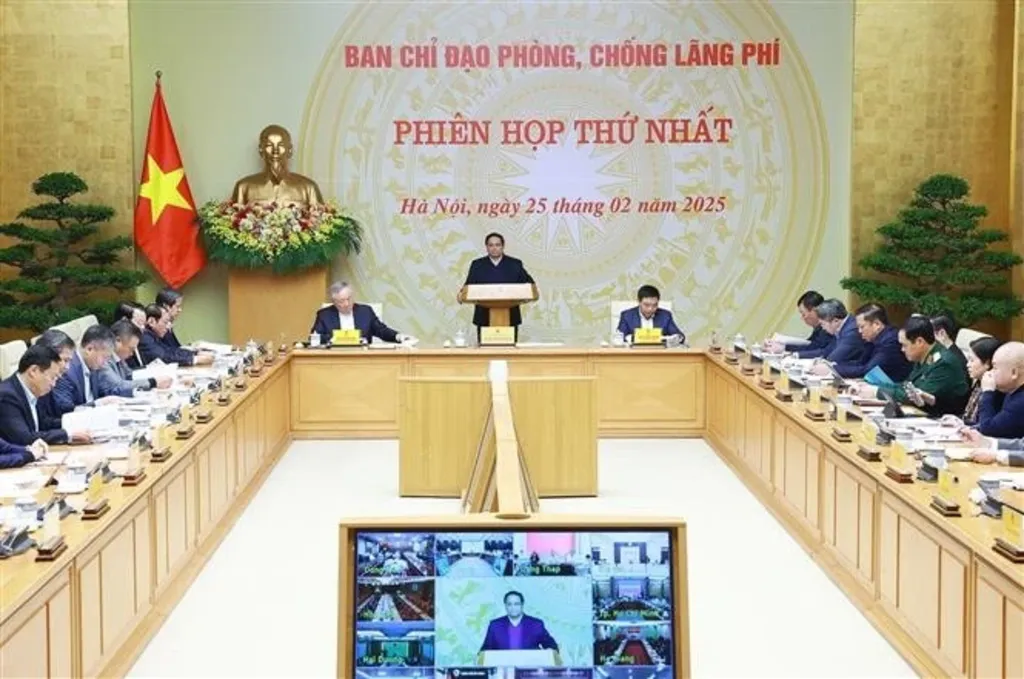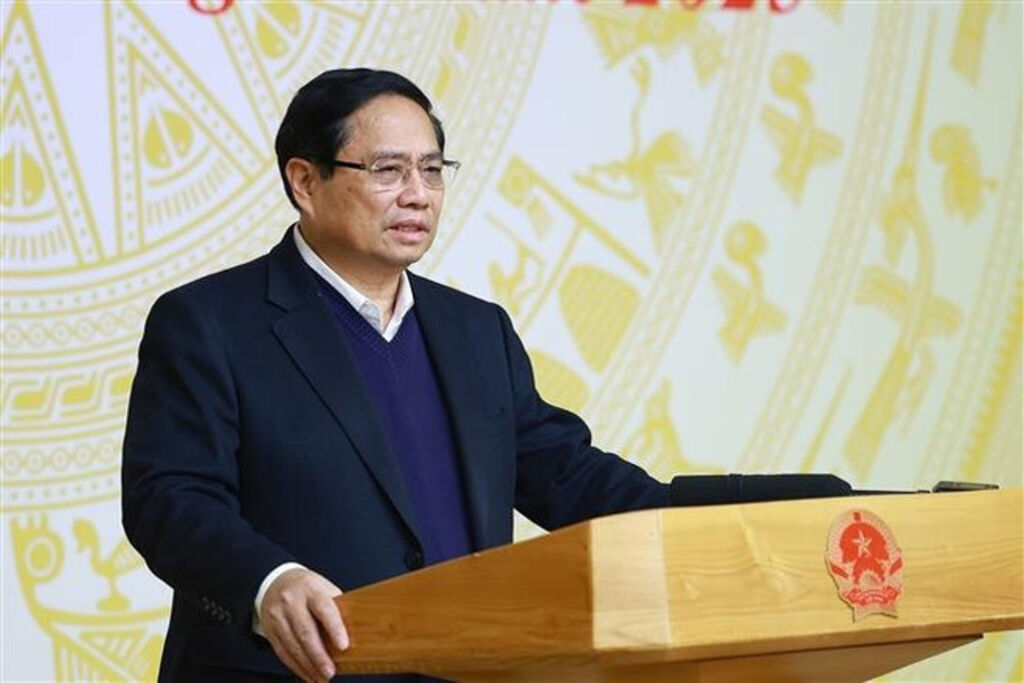 |
| Prime Minister Pham Minh Chinh speaks at the meeting of the National Steering Committee for Wastefulness Prevention and Control.__Photo: VNA |
Prime Minister Pham Minh Chinh has stressed the need to further raise public awareness and take specific actions against wastefulness, making it as much a part of daily life as eating and drinking.
Addressing the first meeting of the National Steering Committee for Wastefulness Prevention and Control, held online in Hanoi on February 25 with the participation of representatives from 63 provinces and cities across of the country, PM Chinh, who is also the chairman of the committee, underlined that while progress has been made in the fight against wastefulness, significant challenges remain.
He noted progress in refining mechanisms and policies, which has helped settle many issues and unlocking additional resources for the economy, and untangle knots for many projects.
Notably, in Da Nang, over 1,300 projects are set to be resolved, along with the Viet Duc University Hospital No.2 project, the Bach Mai Hospital No.2 in Ha Nam, four poor-performing banks, the Block B gas project, and several others on energy.
However, he highlighted that many issues, such as wastefulness in the use of public assets, public investment, land, and natural resources, persist. The PM noted that a significant number of properties and land assets are underutilized or misused, with 9,497 properties and 9,606 other public assets still unresolved. The leader emphasized that the primary cause of these problems is internal, requiring candid acknowledgment and effective solutions that must be implemented swiftly.
 |
| Prime Minister Pham Minh Chinh addresses the meeting__Photo: VNA |
According to leaders of from various ministries, sectors, and localities, wastefulness is widespread in many forms, particularly in financial and public asset management, public investment, and land and natural resources management.
These issues have led to significant negative impacts, draining resources, creating invisible barriers to socio-economic development, and causing missed opportunities for national growth. Many delegates also noted that some of these wasteful practices are due to institutional bottlenecks.
The Ministry of Planning and Investment said that over 1,000 troubled projects across 26 central agencies and 62 localities, including 181 public investment projects, 801 non-state-funded projects, and 60 public-private partnership (PPP) projects. However, local authorities indicated that the actual number of projects facing difficulties is much higher, as not all have been accounted for and are at different stages of resolution.
The main obstacles include a lack of investment capital, delays in basic construction, land use changes, land clearance issues, redundant planning, absence of land allocation or leasing procedures, non-compliance with bidding regulations, and challenges in sourcing building materials, the ministry said.
PM Chinh urged relevant ministries and agencies to promptly address the recommendations from localities, reporting to the competent authorities when necessary.
The Government leader said that amid the national development context, particularly the need to achieve an 8 percent growth target in 2025 and double-digit growth rate in following years, it is crucial to mobilize all available resources to support the development goals.
He reaffirmed that combating wastefulness is a national duty, one that involves the entire political system and citizens with continuous efforts and no breaks. It must be integrated into administrative reforms, restructuring the workforce, simplifying administrative procedures, and eliminating inefficiencies.
Combating wastefulness must be tightly linked to promoting growth, controlling inflation, and achieving strategic breakthroughs in science and technology, digital transformation, and innovation, he said, stressing that wastefulness reduction should become an automatic and daily practice.
He ordered the review of prolonged projects showing wastefulness and proposal of solutions for them, along with the application of smart governance and digital transformation at all levels and sectors, particularly in areas like land management, public finance, and resource management, to prevent wastefulness and improve efficiency.
The leader urged ministries, sectors, agencies and localities to develop their own action plans for wastefulness prevention and control, while promoting their solidarity and creativity in the work.- (VNA/VLLF)









